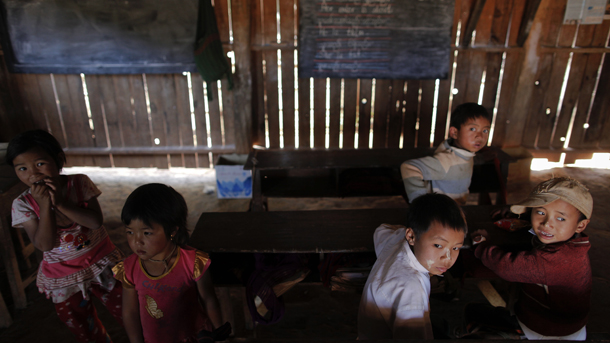The chief economic advisor to Burma’s President Thein Sein and head of Myanmar Development Resource Institute (MDRI), Sayar U Myint, recently penned a very thorough and thought-provoking open letter, calling for the reopening of Rangoon University including the historically significant, nonetheless politically controversial, Student Union building.
As a former student activist, I was moved and energized by such a public statement. All the simple yet convincing points he outlined in the letter as to why and how the nation’s foremost public institution of higher learning should be restored trigger me to think further and deeper about the role of our education system as a whole in the context of the current reform process.
The conventional wisdom is that without a good education system, the country will not have the skilled labor force it needs. Insufficient domestic human resources will then require the country to import skilled professionals and experts from abroad.
This scenario is dangerous and it can significantly impede any economic reform effort in the long run. In fact, initiating economic reform without the necessary “knowledge infrastructure,” not to mention the much needed physical infrastructure, is simply short-sighted.
Therefore human resource development is a priority. Yet the point I want to draw our attention to is a more subtle and sensitive one—the role education can play in building social capital that the country has been so deficient in, due to decades of ethnic conflict and civil war.
The Myanmar government obviously understands that the education sector is of strategic and political importance. It is very unfortunate, however that, the current education system in the country maintains educational objectives for public schools that emphasize primarily on Burman values, history and culture, and thereby effectively ignores the country’s rich ethnic cultures, values and history.
Both the policy and practices of the current education system in the country affirm the subordinate status of minority ethnic nationalities.
A good example of this is the almost complete absence of ethnic history in public school curricula. The teaching of multi-ethnic culture and lessons about the contributions ethnic nationalities have made in the social and political progress of the country is also minimal.
As a result, the majority Burman [Bamar] population has little or no idea about the country’s ethnic diversity, let alone the respect and appreciation for their languages and cultures. The only opportunity they have to learn about ethnic people is through the state media’s portrayal of ethnic nationalities as insurgents and separatists whose ultimate intent is to destroy and disintegrate the Union.
There is a crucial need to respond to the deficiency of knowledge and appreciation of ethnic languages, histories and cultures. The government must make the building of social capital an essential aspect of educational reform. In doing so, the education reform process should be broad-based and all-inclusive.
There are a few things the president can initiate immediately to embark on a genuine reform process with a desire to achieving both economic and political progress. First, it should start with an effort to constitutionally encourage and support the teaching of ethnic history and languages in public secondary school curricula.
Secondly, just as we have the University of Foreign Languages in Myanmar, it is only practical that we also invest in the establishment of a full-fledged University of Ethnic Languages and Cultural Studies, where Myanmar’s rich ethnic cultures and languages are studied, researched and preserved. This will be a great symbol of equality and respect for the country’s ethnic diversity. And it should be done as part of overall education reform.
To achieve long-lasting benefits, Burmese education sector reform must focus on both developing human capital and promoting the value of cultural diversity and ethnic harmony. Only a reform that is broad-based and inclusive will help and, in the long run, reduce economic inequality and foster a more open and harmonious society.
After all, an effective and progressive educational system is essential for economic and social development, laying the groundwork for national reconciliation with diverse ethnic nationalities and building a functional union.
Saw Kapi, a former political activist and an ethnic Karen, is a university administrator currently working as the Director of Admissions and Records at California State University, Bakersfield. The opinions expressed in this guest commentary are those of the author and do not necessarily reflect the views of The Irrawaddy.
















